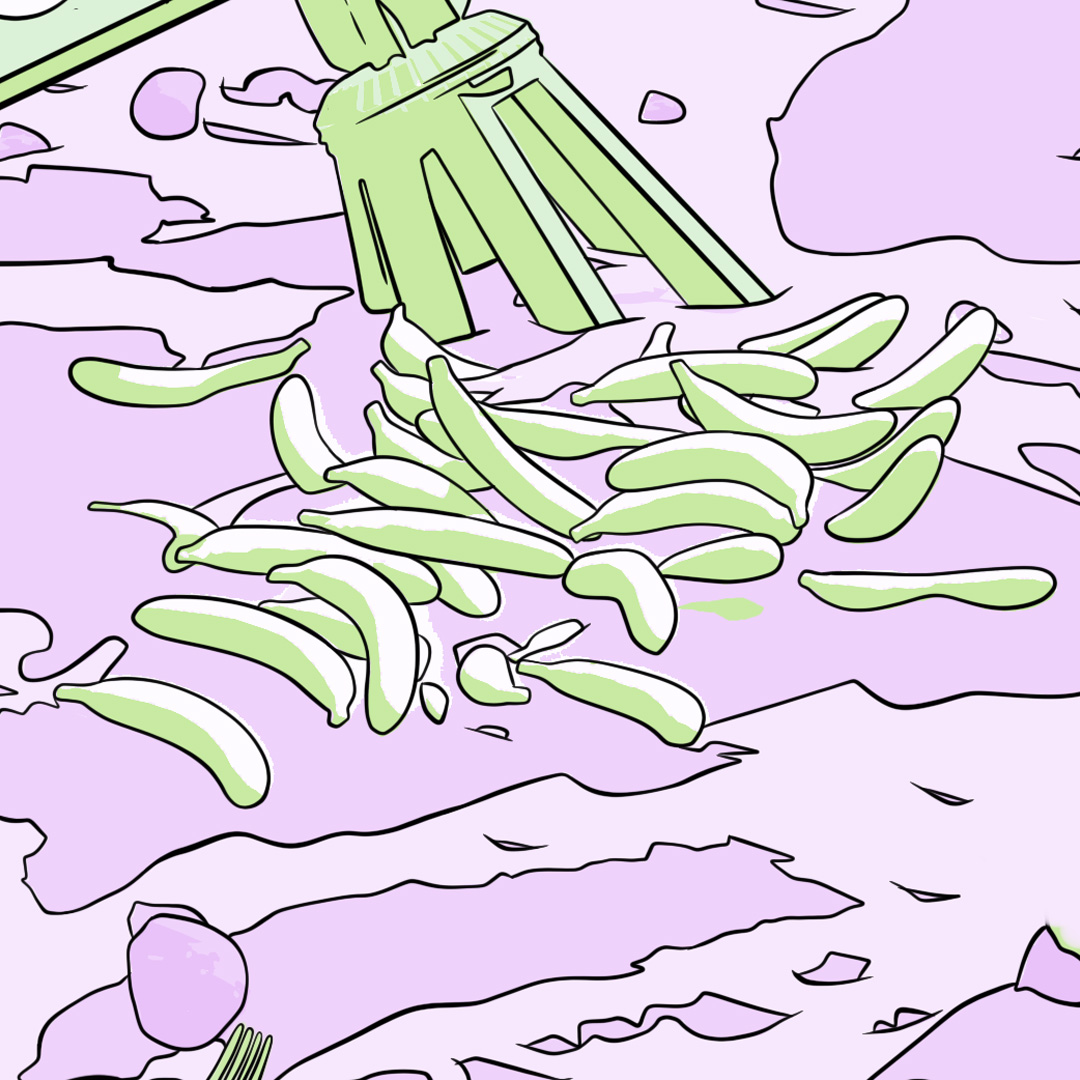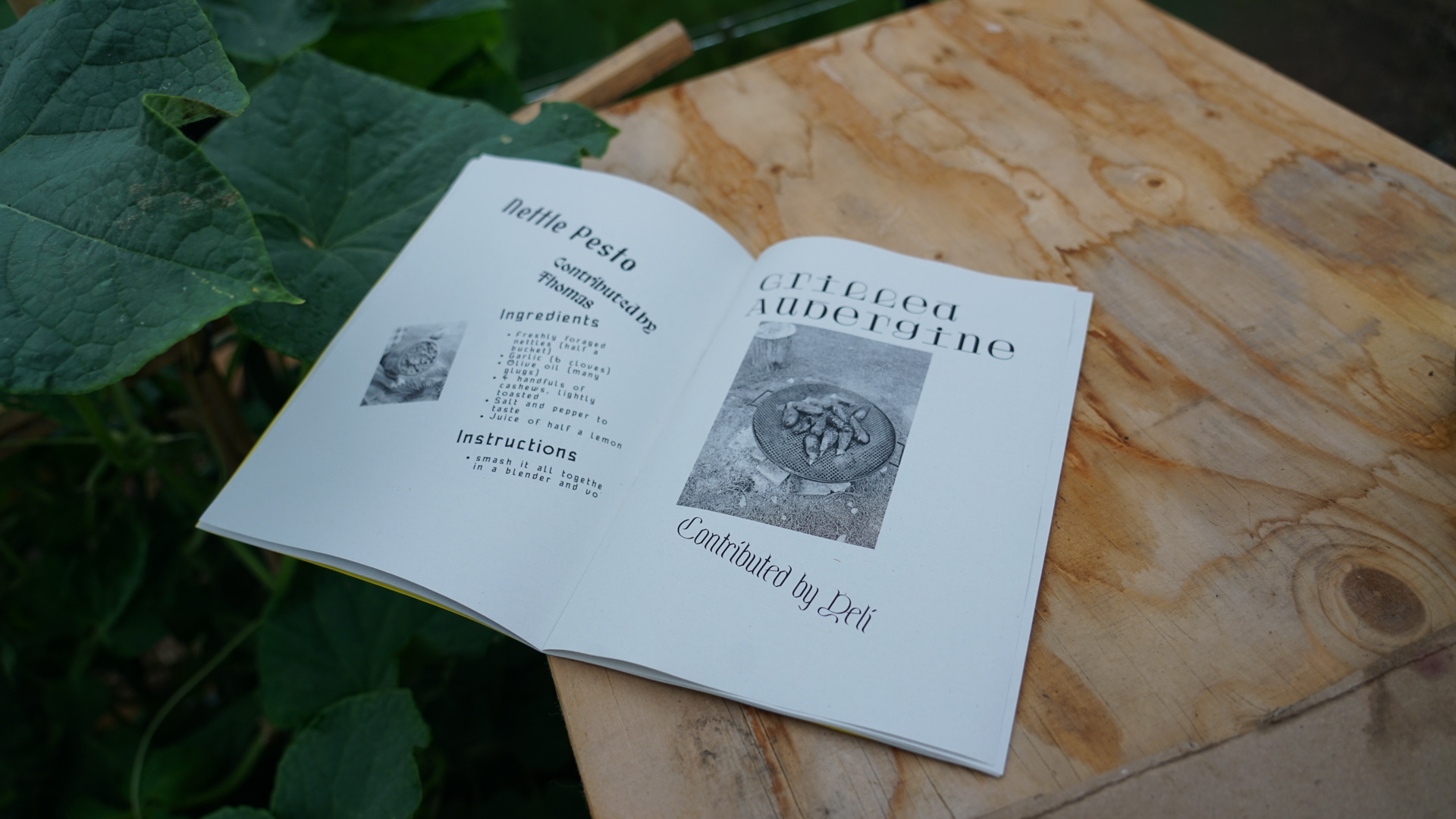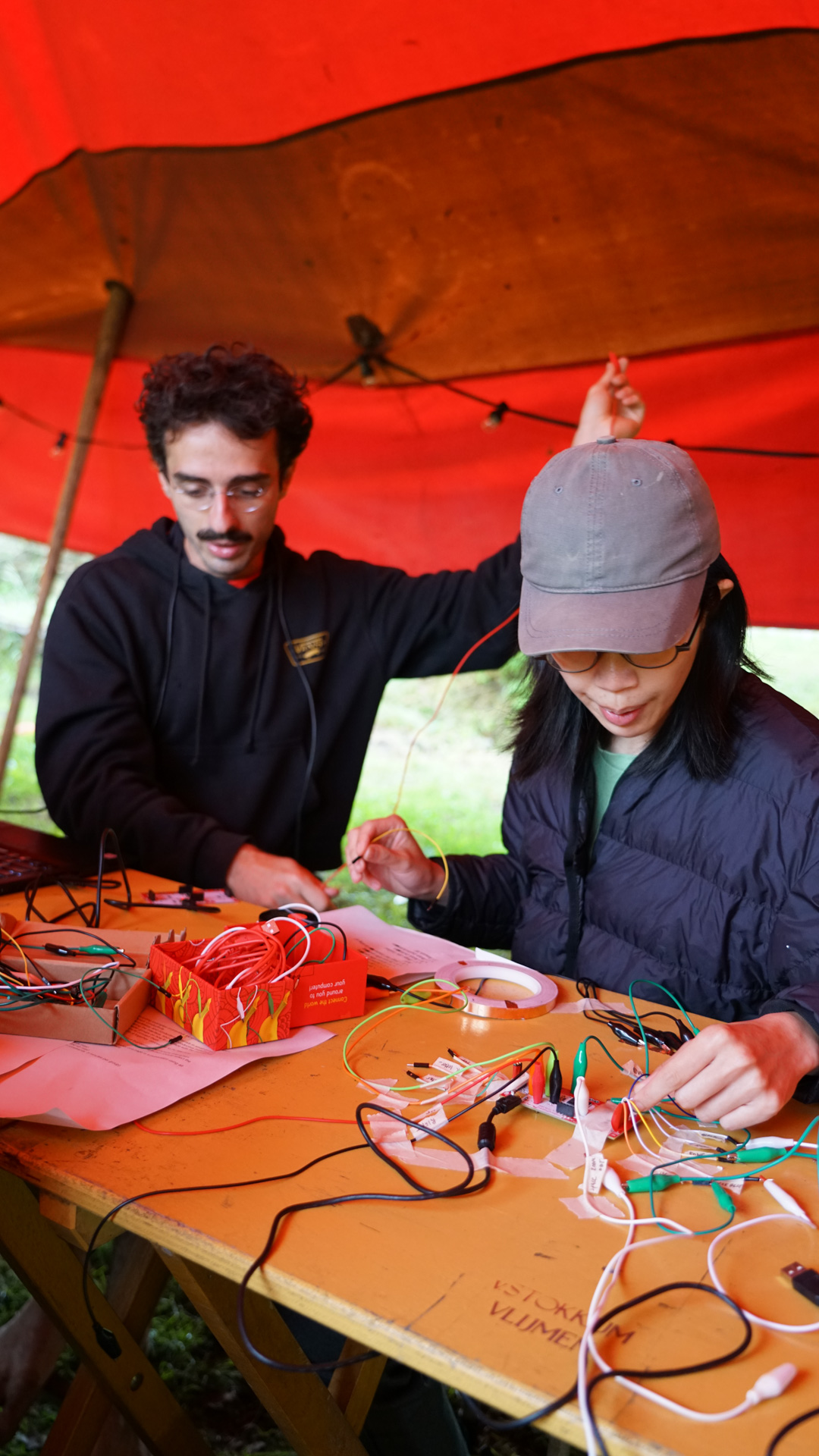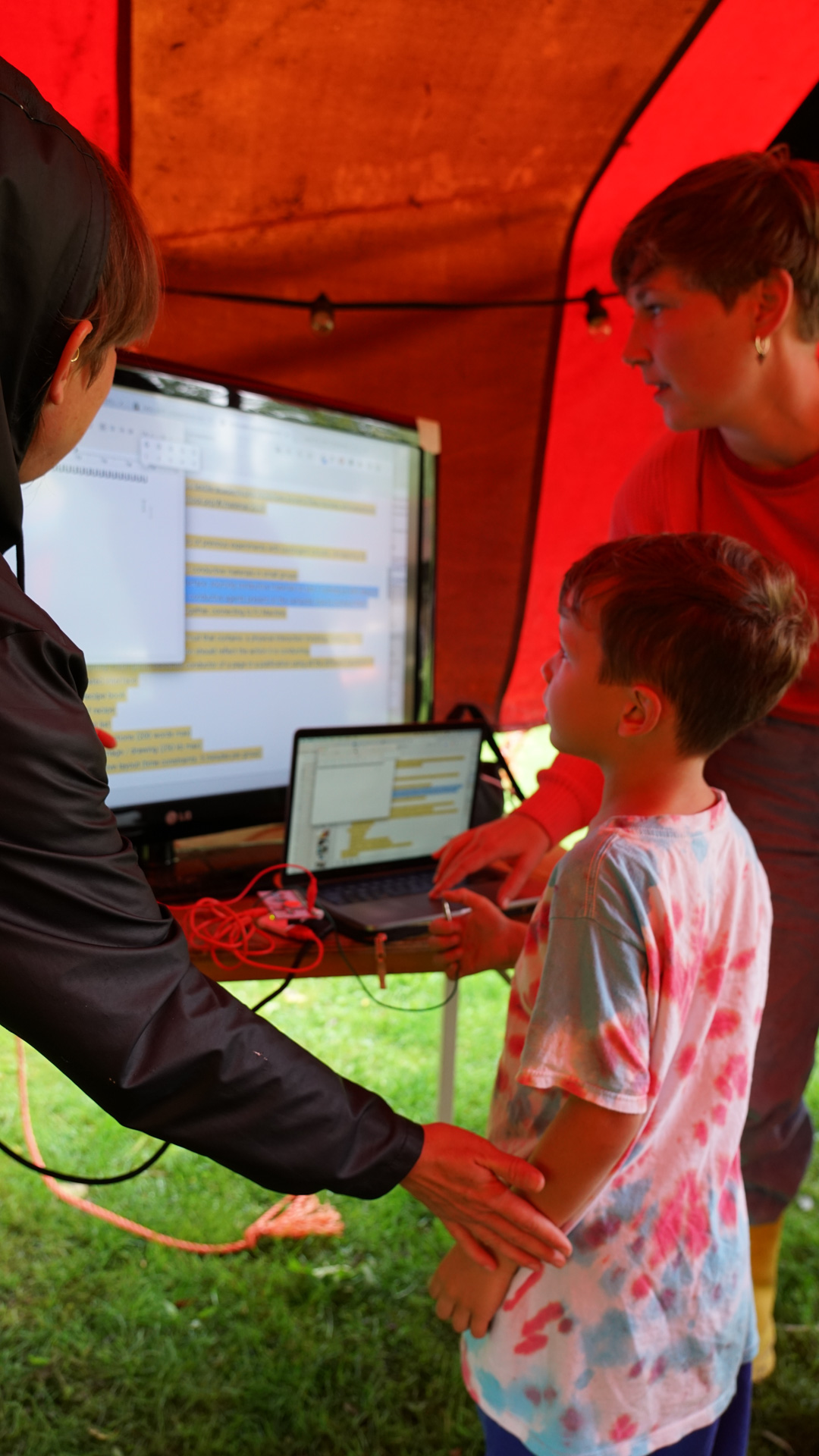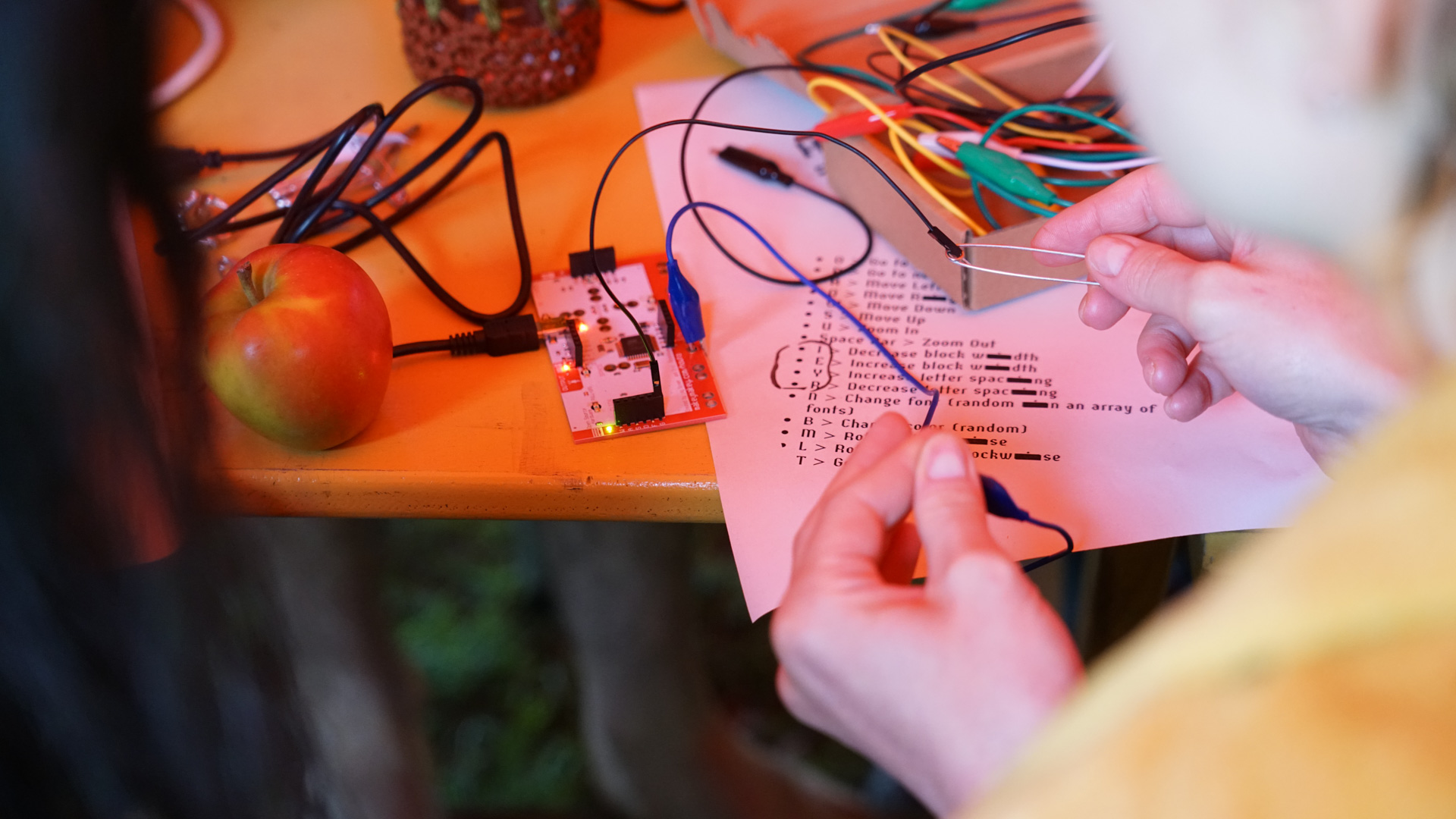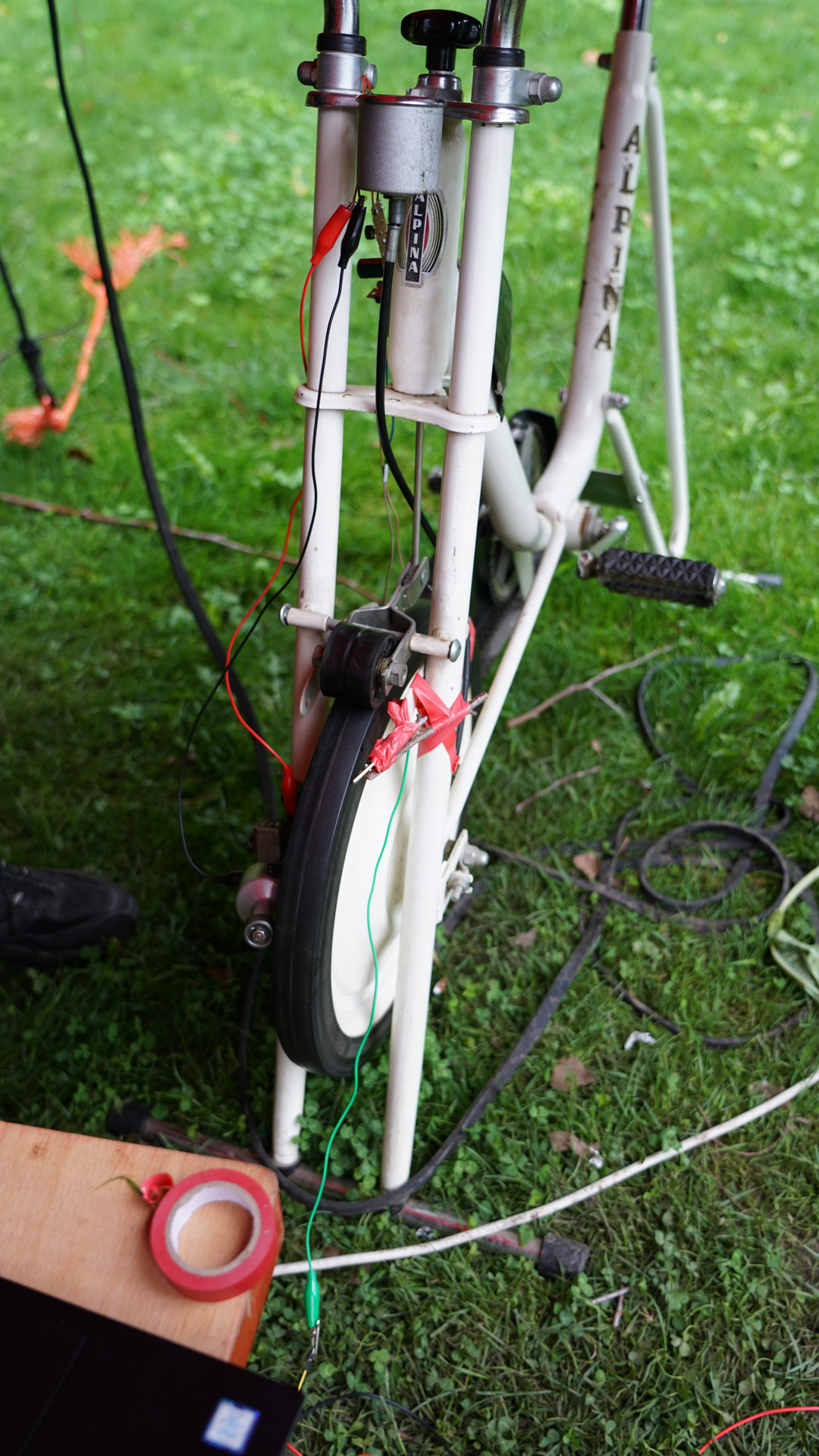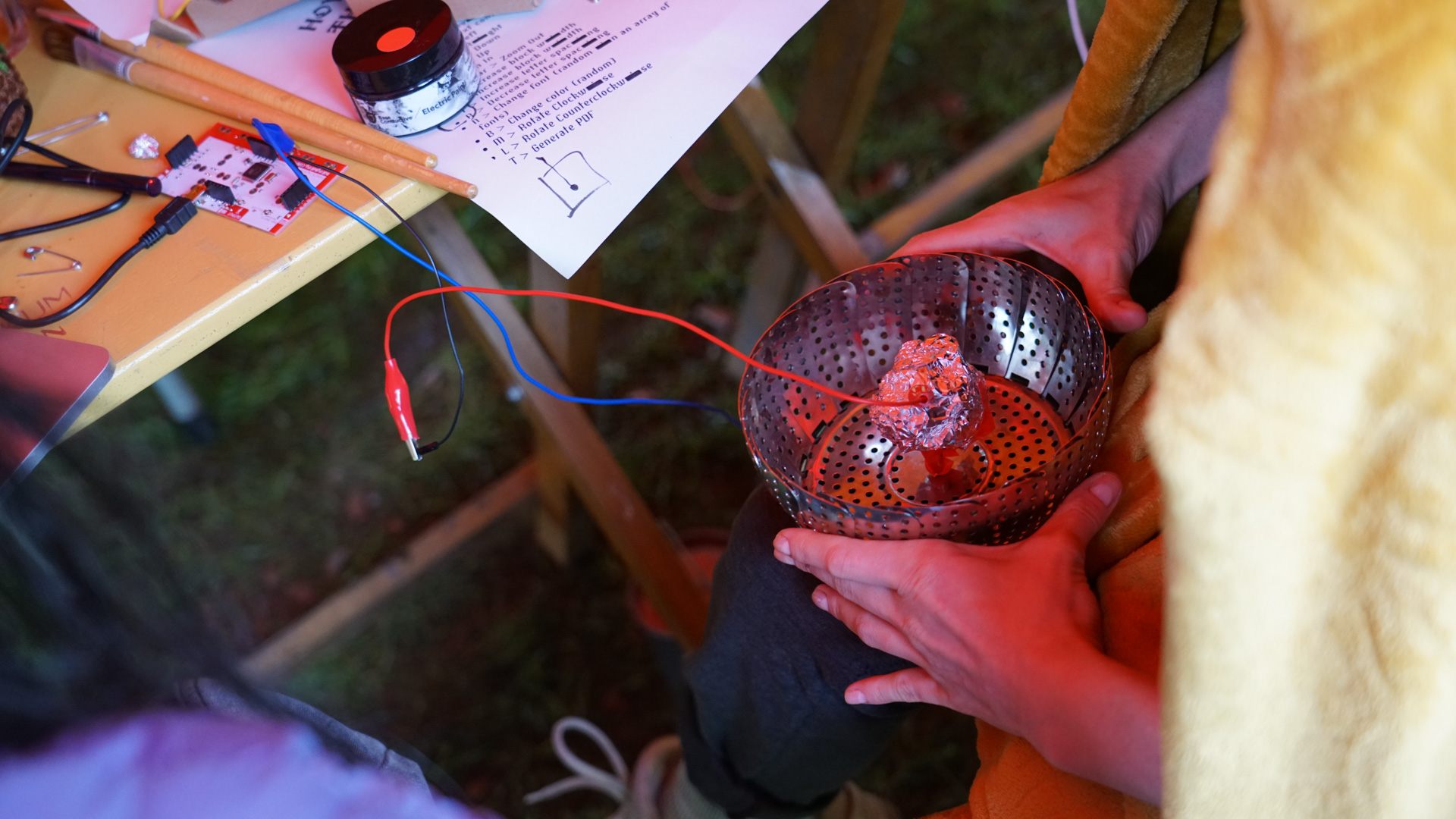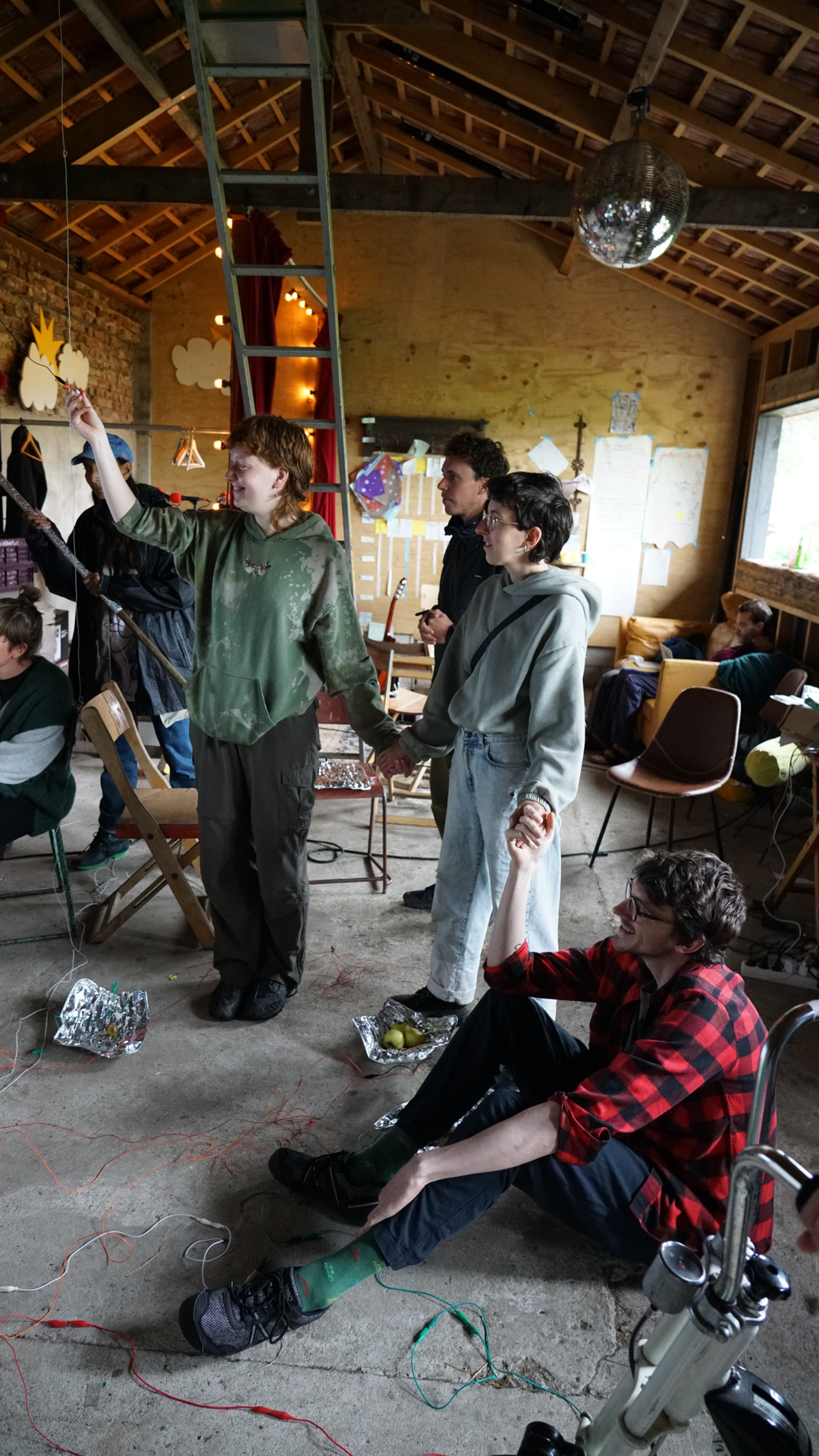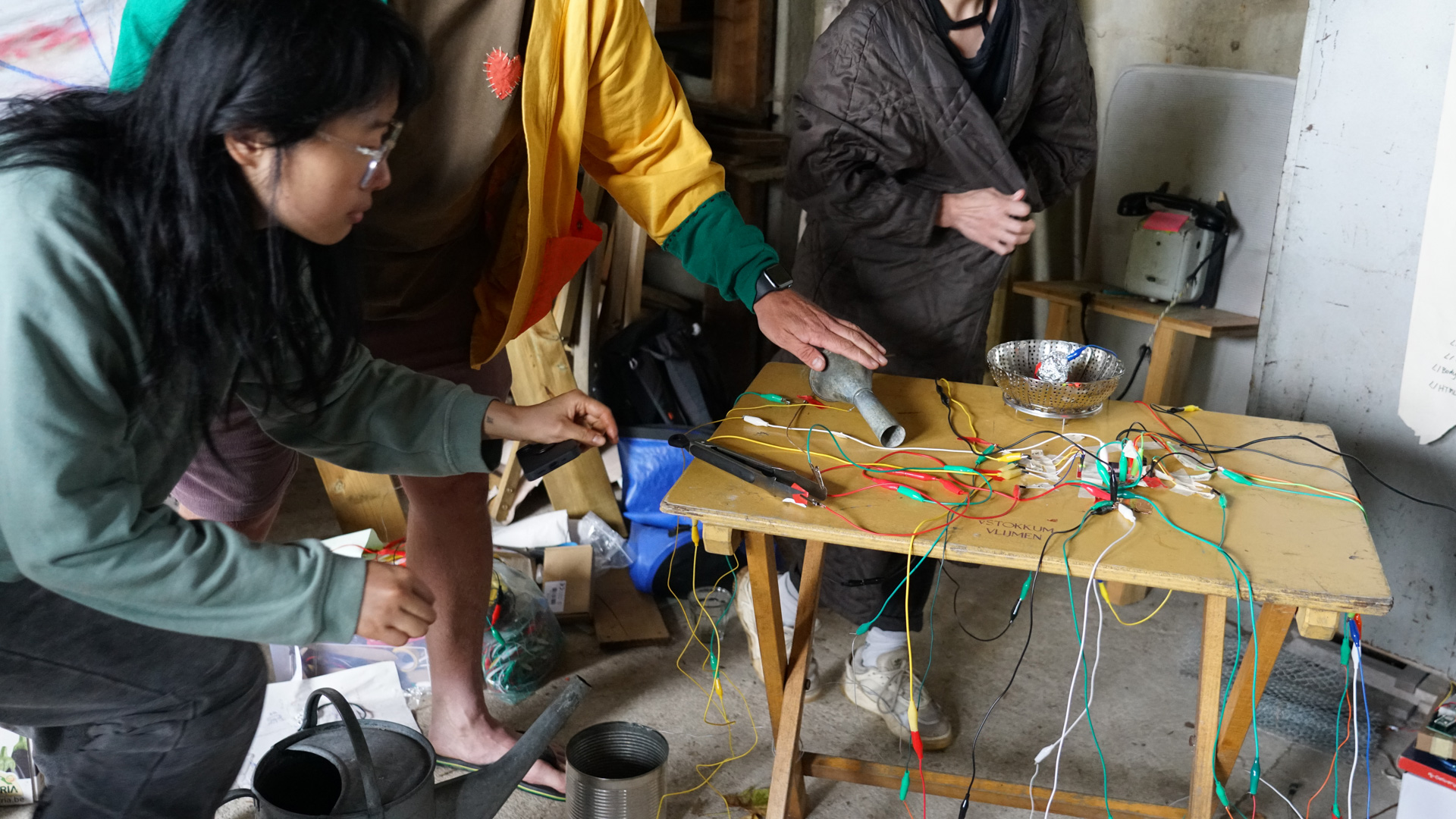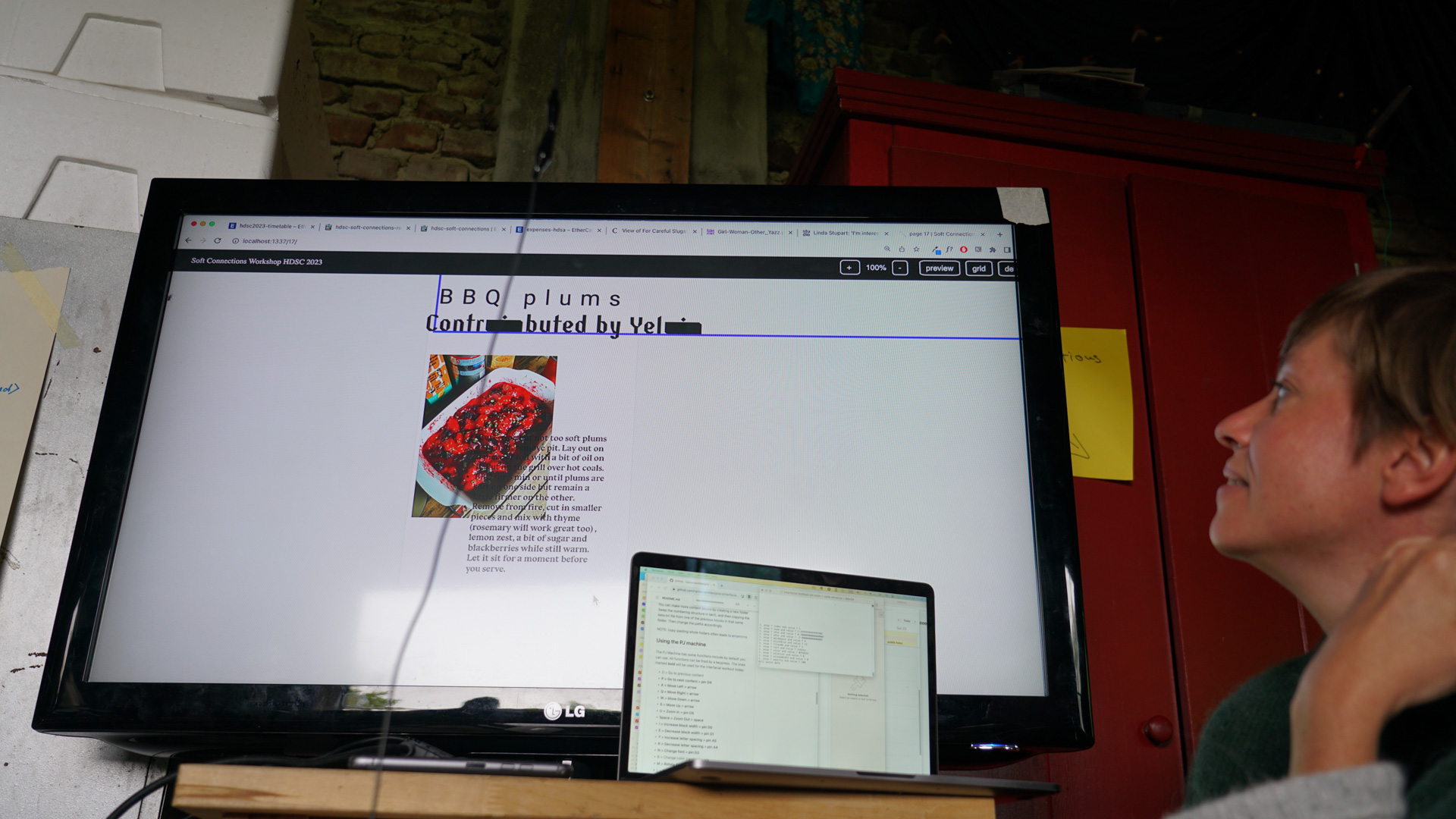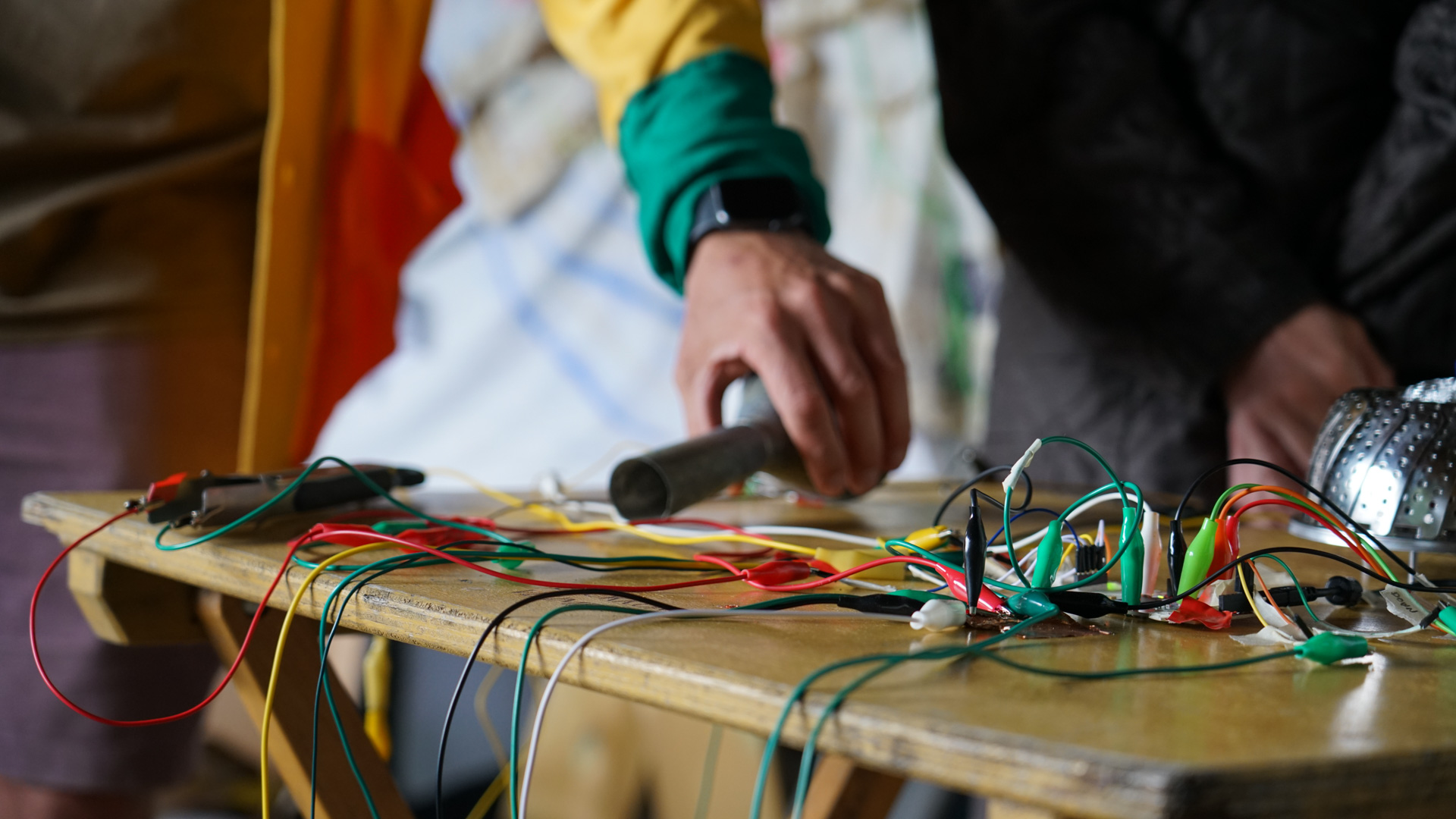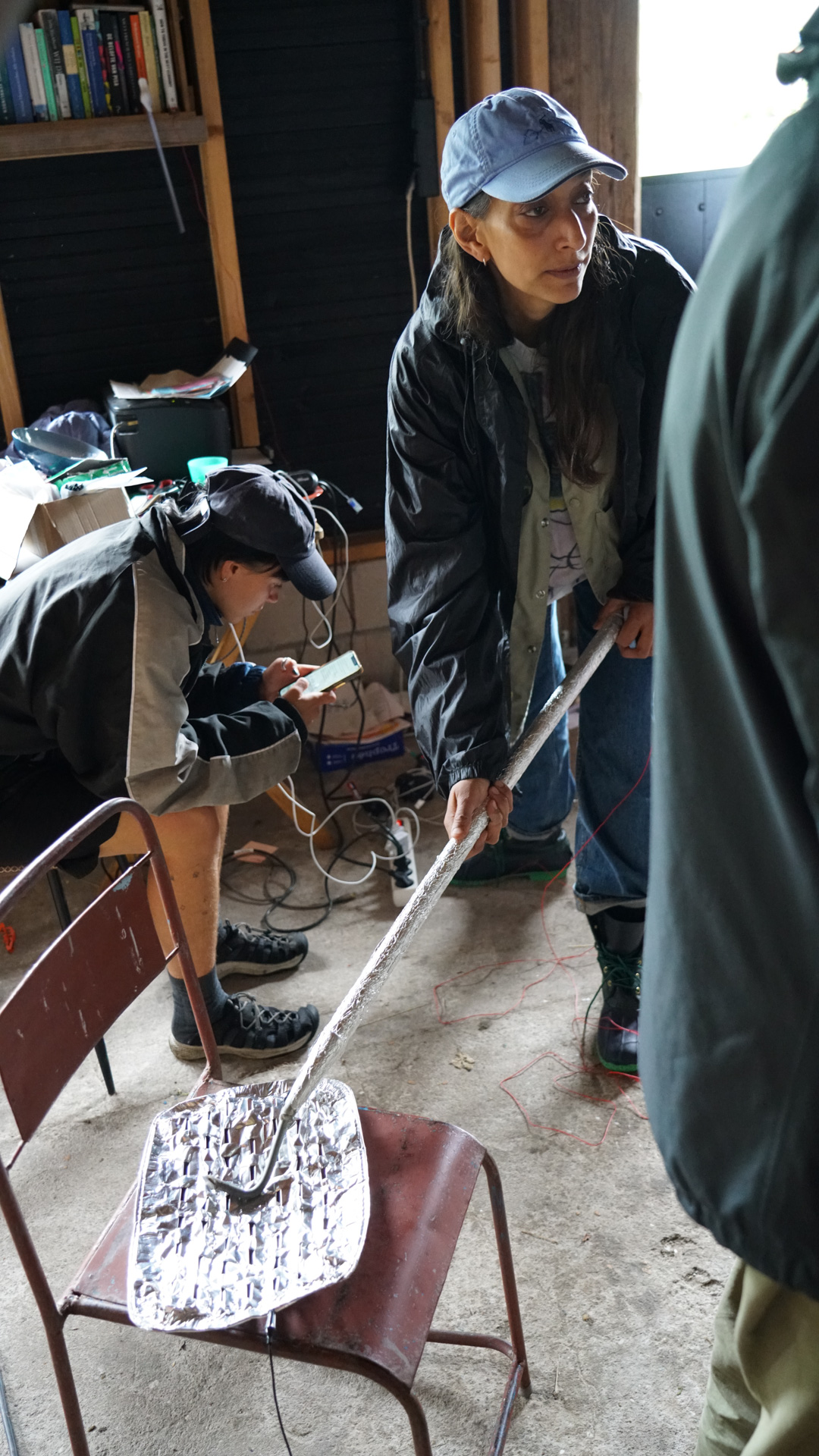Soft Connections Contingent Circuits
| Soft Connections Contingent Circuits | |
|---|---|
| Name | Soft Connections / Contingent Circuits |
| Location | Het Wilde Weg |
| Date | 2023/07/24 |
| Time | 10:00-13:00 |
| PeopleOrganisations | Hackers & Designers , Anja Groten , Loes Bogers |
| Type | HDSC2023 |
| Web | Yes |
| No | |
The workshop evolves from the idea of building electric circuits leveraging the conductivity of human and non-human, living and non-living beings. What can fragile, ephemeral, unstable, living and dying circuits teach us about our dependency on technical infrastructure, and the prevailing expectation of its constant availabilty – always on, always ready to use. 'Soft Connections / Contingent Circuits' takes a hands-on approach to exploring electric circuitry, interwoven with critical (self-)reflection on socio-technical routines. What does it mean to seak troubled transmission rather than seamlessness?
Backdrop: In the past we have frequently used MakeyMakeys to explore other ways of interfacing with computer interfaces, to make such processes unfamiliar, to challenge habits and conventions around the design of Human Computer Interaction, questioning concepts such as seamlessness, intuitive design and user-friendliness.
The MakeyMakey allows to remap keyboards using conductive materials and gestures. Touching someones hand could be the cause for an image to move from left to right on a computer screen. Letting two aluminium balls bounce off each other could cause a page to be printed. Forming a human chain to connect two wires that are 20 meter apart from each other could cause the type size to enlarge on a computer screen. Now, since several years the MakeyMakey became less and less 'open'. That is, it was possible to program its board using Arduino software at first. MakeMakey became more and more proprietrary and limited. Because we love the workshop but don't love to depend on and perpetuate the use of expensive hardware, H&D member Loes Bogers recently developed a shield that allows for an ESP module to be used as a MakeyMakey! For this workshop we would love to try out this board and create an interface with it, utilizing conductive materials that we source on and around the campsite of Het Wilde Weg. We imagine a trial and error approach to this workshop, figuring this out together with worshop participants.
We propose to particularly focus on conductive agents present on the site, the co-inahbitants of the Hopepunk campground, the muddy ground, leaves, trees and bushes, a bundle of moss, water puddles, a rusty nail,... We will explore their conductivity and flexibility, their resistance, their ability to bend and swing ... and patch together a contingent circuit. Rather than using a computer screens for the esp to interface with, we use instead leds and create a light interface, which we can use during evenings to produce subtle light signals. Depending on participants interests, we could alternatively also remap our computer keyboards.
This workshop is a remix of various workshops that have been organized in and around the H&D cosmos, for instance:
- Interfacial Workout
- Counter Interfaces
- Solarpunk Kids (Bring Your Own Grown-up) - Scavenger hunt with Hackers & Designers
Bios
Anja Groten (DE) is a designer, organiser and educator based in Amsterdam. She holds a degree in Communication Design from Niederrhein University of Applied Science, Krefeld (Diploma 2003-2008), a Master degree in Design from Sandberg Instituut, Amsterdam (MDes 2009-2011) and a PhD in Artistic Research from PhDArts, Academy of Creative and Performing Arts Leiden University and Royal College or Art The Hague (PhD 2017-2023). Groten’s work revolves around the cross-section of digital and physical media, design and art education and the involvement in different interdisciplinary groups. In 2013 she co-founded the initiative Hackers & Designers, attempting to break down the barriers between the different fields by enforcing a common vocabulary through education, hacks and collaboration. Since 2019 Groten is the course director of the design department at the Sandberg Instituut Amsterdam, Master of the Rietveld Academie.
Loes Bogers (NL) is a researcher, educator maker working at the intersections of design, technology and arts, with a background in critical theory and philosophy of technology. She holds a degree in interactive media (MA, Goldsmiths) and cultural studies (BA, University of Amsterdam) and works as senior lecturer at the Breitner Academy, Amsterdam University of the Arts where she is also coordinator of the ArtechLAB. In 2018 she joined the Hackers & Designers collective.
